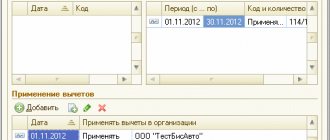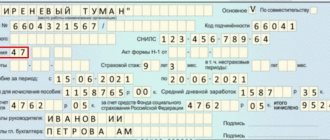What the law says
In ch. 41 of the Labor Code of the Russian Federation regulates the procedure for carrying out labor relations with women who have family obligations. Working women can enjoy some benefits in order to successfully combine motherhood and work activities. Guarantees have been developed for them during employment and dismissal.
Normative base
In Art.
254 of the Labor Code determines that employees of organizations with children under 1.5 years old can be transferred to a position with lighter duties if they have a desire and it is difficult for them to cope with work in their current position. At the same time, loss of earnings cannot be allowed. Art. 261 of the Labor Code is not allowed to sever labor relations at the employer’s discretion (except for liquidation) with the following subordinates:
- pregnant woman;
- with children under 3 years old;
- single mother;
- sole breadwinner of 3 or more children.
Download for viewing and printing:
Article 254 of the Labor Code of the Russian Federation “Transfer to another job of pregnant women and women with children under the age of one and a half years”
Article 261 of the Labor Code of the Russian Federation “Guarantees for a pregnant woman and persons with family responsibilities upon termination of an employment contract”
What grounds are allowed?
An employee with a child may be dismissed if the following situations occur:
- bankruptcy of the company with further liquidation;
- several reprimands in the personal file, failure to fulfill duties;
- absenteeism;
- coming to work after drinking alcohol;
- transfer of trade secrets to third parties;
- theft of company property;
- non-compliance with safety rules, causing significant damage or threat to the lives of personnel;
- forgery of documents, issuance of false information;
- immoral acts.
In addition to the above permitted grounds for terminating an employment contract, women have the right to resign at their own discretion. In such situations, business leaders should not interfere with them.
Restrictions
Art.
253 of the Labor Code of the Russian Federation allows mothers to be involved in work where there are dangerous or harmful factors only in a limited manner. It is also not allowed to use female labor to lift heavy loads with extreme loads. Art. 259 of the Labor Code of the Russian Federation guarantees mothers that without obtaining consent, managers do not have the right to send them on a business trip or ask them to work overtime, at night, on holidays and on weekends.
Important! The type of industry in which the employer operates, as well as the position held by the woman, are important. Depending on the complexity of the work, some categories of employees are assigned a working week of no more than 36 hours. Download for viewing and printing:
Article 253 of the Labor Code of the Russian Federation “Work in which the use of women’s labor is limited”
Article 259 of the Labor Code of the Russian Federation “Guarantees for pregnant women and persons with family responsibilities when sent on business trips, involved in overtime work, night work, weekends and non-working holidays”
Entitled payments
Payment of severance pay upon dismissal on one's own initiative is not provided for by law. Therefore, the parent will be paid only the required amounts:
- final payroll;
- compensation for unused vacation periods.
If he is entitled to bonuses or additional material payments, accrued after the employee’s dismissal, they must still be paid later, since termination of work is not the reason for their cancellation.
Expert commentary
Gorchakov Vladimir
Lawyer
The accounting department, at the request of a resigned employee, is obliged to provide him with salary certificates for the last two working years and for three months. They will be needed to calculate benefits when they are paid to the Central Bank.
Previously, citizens who resigned voluntarily without specifying a reason were entitled to only a minimum benefit. Now, when calculating benefits, they are based on their average salary, regardless of the reason for dismissal.
The main condition that must be met is that the unemployed person has had 26 weeks of paid work in the 12 months preceding his dismissal.
Currently, the amount of benefits for citizens registered with the Central Bank is:
- 100% of the average earnings at the last place of work with a total work experience of more than 8 years;
- 80% of the average salary with a total experience of 5 to 8 years;
- 60% of earnings if work experience is less than 5 years.
Features of dismissal of women with children
The age and number of children an employee has is of fundamental importance in the use of established benefits. These privileges affect the performance of work activities and dismissal.
Under 3 years old
Workers with children of this age are provided with a guarantee of maintaining their position in the event of staff reduction or personnel changes.
Women on maternity leave have the right to part-time work and the opportunity to work from home. In both options, the benefit is retained. According to Art. 261 of the Labor Code of the Russian Federation, it is impossible to dismiss a woman from this category at the request of the manager. To sever the employment relationship, you must provide compelling reasons or liquidate the enterprise.
Up to 14 years old
An article of the Labor Code of the Russian Federation provides the right to female workers to work part-time or a week.
To do this, you need to fill out an application addressed to the director of the organization. This rule is designed to reduce some responsibilities, thereby increasing free time for children. It is not allowed to fire a mother on the initiative of her superiors, except in cases of liquidation and illegal actions of the employee herself.
Article 93 of the Labor Code of the Russian Federation “Part-time working hours”
Disabled child
Women are provided with the following guarantees:
- Additional 4 days off per month with mandatory payment - art. 262 Labor Code of the Russian Federation;
- Taking annual leave at the most convenient time for the employee - Art. 262.1 Labor Code of the Russian Federation;
- The impossibility of dismissal until the child turns 18 years old, except for the liquidation of the company, a serious misconduct by a woman - Art. Labor Code of the Russian Federation.
Article 81 of the Labor Code of the Russian Federation “Termination of an employment contract at the initiative of the employer”
Article 262 of the Labor Code of the Russian Federation “Additional days off for persons caring for disabled children and women working in rural areas”
Article 262.1 of the Labor Code of the Russian Federation “The order of granting annual paid leave to persons raising disabled children”
2 or more children
Mothers of many children are also provided with benefits and guarantees.
For example, they have a priority right to take regular vacation during the summer months. According to Art. 179 of the Labor Code of the Russian Federation, they cannot be deprived of their positions if their children are disabled or receive full-time education. Moreover, the age of children is not a hindrance. Art. 261 of the Labor Code of the Russian Federation establishes a ban on severing labor relations with a mother of many children if she is the only breadwinner of the family, provided that the father of the children is unemployed.
Article 179 of the Labor Code of the Russian Federation “Preemptive right to remain at work when the number or staff of employees is reduced”
Single mothers
Employees in this category are given the right to retain their position until the child’s 14th birthday.
An employer, at its discretion, does not have the right to fire a single mother. To cancel an employment agreement, only compelling reasons are provided, suggesting serious violations of the internal rules of the organization, as well as complete liquidation of the company (Article 261 of the Labor Code of the Russian Federation). Single mothers are considered less protected citizens, so they are entitled to additional payments from the regional budget.
Divorced women
The law has developed a feature for the dismissal of workers who have officially broken off marital relations with their husbands. For these women, the norms specified in Art. 261 of the Labor Code of the Russian Federation are valid in full, depending on how old their children are. Therefore, it does not matter whether the employee is married or not, whether her husband is unemployed or officially employed. Attention! The fact of paying alimony does not affect the benefits. Having even one child under 14 years of age, a mother is prohibited from dismissal on the initiative of the director of the enterprise.
Can a mother or father be laid off?
If there is only one child in a two-parent family and he is over three years old, then if there is a reduction in staff or numbers, the mother can only rely on her professional skills and an education diploma, because only parents with many children and women with a child under 3 years old have protection from layoffs or single moms.
Even such “non-dismissal” categories are subject to reduction if the company’s management has decided to completely liquidate the business entity.
Dismissal at the request of one of the parties
Special conditions apply to the group of citizens, which includes mothers and persons raising minors, so employers have few grounds for dismissing them.
At the initiative of the employee
With women who have dependents under 14 years of age, it is allowed to sever the employment relationship only on their initiative or due to the upcoming liquidation of the company (IP).
By abbreviation
Parents with children under 14 years of age have an advantage if management plans to make staff cuts. However, this applies exclusively to single mothers and fathers, as well as persons raising disabled children. A legal action on the part of the employer is to transfer these employees to another position.
By agreement
In such cases, the law allows for non-compliance with guarantees, since the parties independently establish the conditions for dismissal.
But if during court hearings it is proven that the employee signed the agreement under duress from her superiors, then the deal is declared invalid. The woman will be required to be reinstated in her job and be paid wages for forced absences. Taking into account the above, employers planning to say goodbye to women with young children should provide them with adequate monetary compensation in advance. According to statistics, dismissal by agreement of the parties is the most popular way to free up a vacancy if an employee is on maternity leave.
Legitimate reasons for dismissal
Employees with small children have certain labor protections that provide them with strong legal protection. However, there are a number of cases when even they are not able to protect a woman from dismissal.
In accordance with Art. 261 of the Labor Code of the Russian Federation, the reason for the legal dismissal of an employee raising a child under 18 years of age may be:
- Dissolution of the enterprise. If a company ceases to exist, then it does not need employees.
- Getting a job and/or promotion using fake documents. Important! This offense entails not only dismissal, but also administrative punishment.
- Failure to fulfill job duties, recorded in the form of a reprimand or disciplinary action.
- Change of owner of the organization's property.
- Inconsistency with the work performed or position held due to insufficient qualifications. Important! Conclusions about this can only be drawn on the basis of the certification results.
- Committing actions that cause reputational or material harm to the company:
- Dissemination of secret or classified information;
- Theft, embezzlement of property belonging to the enterprise, or committing actions that led to financial losses.
- Failure to comply with labor protection, resulting in serious consequences (accidents, accidents, disasters, etc.).
- Violation of discipline. If an employee appears at the workplace in a state of intoxication (alcohol, toxic or drug), he can be fired even if he has minor children. Important! Many believe that one violation of production and labor discipline is not enough to be fired. In fact, such situations arise quite often. The main thing is that all of them are correctly documented (in the form of acts, protocols or memos).
- Loss of trust from the employer.
- Commitment of immoral acts by an employee performing educational functions.
- Regular absences. If a subordinate was not at work the whole day or did not show up for work within 4 hours from the start of the shift, the management of the enterprise has every right to initiate the dismissal procedure. Important! If the employment contract does not clearly define the employee’s workplace, then his absence from work for a certain period of time cannot be considered as absenteeism. However, in this case, the person must be on the territory of the enterprise!
It should also be noted that an employer cannot fire an employee during a period of vacation or temporary disability . The only exception is the liquidation or dissolution of the organization.
All other actions are illegal and can be appealed in court no later than 1 month from the date of dismissal (Article 392 of the Labor Code of the Russian Federation).
When initiating the dismissal of an employee, the head of the enterprise is obliged to submit documents that confirm the validity of the termination of cooperation.
How to apply
The procedure for terminating an employment contract with an employee raising children is practically no different from the usual procedure.
However, there are some nuances in the process. When an employee decides to quit herself, she needs to submit an application within the deadline established in Art. Labor Code of the Russian Federation. The manager issues an appropriate order.
If a woman leaves work to subsequently care for a minor, then this reason must be indicated in the application. Based on the paper from the employee, an order with exactly this wording is formed.
Important! If the manager initiates dismissal on the basis of an employee’s violations, then he is obliged to attach a full package of documents confirming the fact of illegal actions.
Documentation
The norms given in Art. The Labor Code of the Russian Federation obliges every newly employed person to provide documents according to the established list. It does not indicate the papers providing benefits. In this regard, to protect maternal rights, women are recommended to present photocopies of the following documents themselves:
- children's birth certificates;
- certificate of a large family;
- certificate of disability of the child;
- extract from the house register.
Download for viewing and printing:
Article 65 of the Labor Code of the Russian Federation “Documents presented when concluding an employment contract”
If a woman herself wants to quit
According to Article 80, if the employee herself wants to leave her job, she can do so at any time. But you must notify your boss about your decision at least fourteen days before leaving by submitting a corresponding application.
The application must provide the following information:
- name of the organization, personal data and position of its employer;
- the date of the application, as well as the last working day;
- request to terminate the contract at your own request.
The paper is signed and given to the employer. In this case, the woman is not obliged to give the document personally to the boss. She can also use postal services. If a young mother is on maternity leave to care for a baby, she is not required to work 2 weeks before dismissal. The same rule applies to those whose employer withholds wages.
If before the date of dismissal a woman changes her mind about leaving her job, she can withdraw her application.
If the required two weeks have passed, and the employment agreement has not been terminated and the employee no longer insists on dismissal, the agreement continues to be valid. If the employment contract is terminated, the woman must be paid all the funds due to her: salary, compensation and severance pay.
Along with the money, the employer is obliged to provide the following documents:
- work book;
- documents on education and qualifications (if they were stored in the organization);
- medical record (if available);
- certificate in form 2-NDFL;
- extract from the SZV-M report.
A woman can be fired by agreement of the parties. However, she needs to understand that in this case it will not be possible to withdraw the submitted resignation letter.
Do I need to work for 2 weeks?
Two-week work is required in most cases, but sometimes the law allows not to comply with this norm:
- dismissal of a maternity leaver;
- if it is necessary to care for a minor;
- dismissal by agreement of the parties.
Do you need to give notice or are you allowed to quit immediately?
An application for resignation must be submitted two weeks in advance, because management needs time to find a new employee. If a woman is employed in seasonal work or is on a probationary period, the time to notify the employer is reduced to 3 days.
The law allows you to quit immediately in the following cases:
- the boss violated the employee’s rights;
- dismissal by agreement with management;
- for a valid reason, upon presentation of documentary evidence.
If you were fired illegally
If the manager nevertheless fired an employee who, according to the law, should have been kept at work, she needs to write a complaint, properly substantiating it, and send it to the employer.
It is better to do this in two copies: send one to your boss, and keep the other for yourself. If the employer has not responded in any way, several steps can be taken at once:
- send a complaint to the trade union (if the woman is a member);
- complain to the labor inspectorate;
- contact the prosecutor's office.
It is very difficult to prove the illegality of dismissal if the woman herself wrote an application to terminate the contract. Therefore, even under pressure from the employer, you should not draw up and sign such papers.
If this does not help, you need to file an application with the court. To do this, you need to prepare a package of the following papers, some of which can be requested at your place of work:
- contract concluded with the employer;
- The order of acceptance to work;
- dismissal order;
- a certificate of qualifications, profession and position for which the employee was hired;
- certificate of average salary;
- characteristics from the place of work;
- papers on disciplinary action (if it was the basis for dismissal);
- documentary evidence that there was no violation.
If the head of the organization does not want to provide the requested papers, you need to reflect this fact in the lawsuit and ask that they be requested by court employees.
There is only a month to restore justice (unless there are exceptional circumstances that allow this period to be extended), so you need to act quickly.
If the child’s mother wins the case, she must be reinstated at work, as well as pay compensation for moral damages and the hired lawyer. You can start work the very next day after the court decision is made.
How to defend your interests
If we take into account the privileges established by law, it becomes clear that the fact of illegal dismissal can only be challenged in court.
It is on the basis of the decision of this authority that the employee will not only be reinstated in her previous workplace, but also the company administration will be punished with fines for illegal actions. When a woman is just about to be fired on the initiative of the director, she should contact the Labor Inspectorate. Filing a complaint to this body will help avoid illegal severance of labor relations.
If your boss threatens to fire you
It happens that an unscrupulous employer resorts to various tricks so that an employee raising a small child herself writes a letter of resignation.
Even threats can be used, otherwise they will be fired “under the article”. There is no need to be afraid. It is enough to fulfill your duties conscientiously and, just in case, take a number of measures that can protect you in case of forgery:
- Daily calls from your work phone to the mobile phone of someone you know will save you from groundless accusations of absenteeism (so that, if necessary, you can prove your presence at the workplace).
- If, when entering the office, you were stopped by security or the card did not work, you need to immediately go to the post office and send a letter or telegram to management, demanding to be allowed into the workplace.
- If absence from work is related to work responsibilities, it is better to document it with a travel document.
- If a manager wants to fire for violation of labor discipline, it is important to know exactly when the job description was signed. According to the rules, the employee must be familiarized with it before signing the employment agreement. The employee must also sign a document confirming that he has read the instructions. If the person was not given anything to sign or was instructed after signing the employment contract, dismissal for violation of discipline in the workplace will be considered unlawful.
- If the boss decided to fire “for repeated violation of labor duties,” and the employee did not violate anything, she should know that after committing an offense, a written explanation must be requested from her within the next two days. If the reprimand is unfounded, you can safely go to court within three months.
Lawyer's answers
Consultations with legal experts are always popular.
Below are answers to the most frequently asked questions related to the dismissal of women raising minor children. I have 2 dependents, is it legal to lay off?
No if you:
- you are their only breadwinner;
- at least one of your children is under 3 years old;
- support a disabled child.
These norms are given in Art. 179 Labor Code of the Russian Federation. In other cases, dismissal at the discretion of the director is lawful.
I'm being asked to leave on probation. My child is under 3 years old.
According to Art. The Labor Code of the Russian Federation does not establish probationary periods for women if they have children under 1.5 years of age. Accordingly, the reason for dismissal “the employee failed to cope with his duties during the probationary period” cannot be applied.
In Art. The Labor Code of the Russian Federation defines cases when mothers of young children are allowed to be fired at the request of management. Failure to comply with the conditions established for the probationary period is not mentioned there.
Download for viewing and printing:
Article 70 of the Labor Code of the Russian Federation “Test upon hiring”
Article 71 of the Labor Code of the Russian Federation “Result of the test when hiring”
How can I stay with staff reductions? I am divorced, supporting a child under 14 years old
It is lawful to dismiss you provided that you provide your own consent to this. It is also possible to indicate in the work book the reason for termination of the employment contract “by agreement of the parties” or “as a result of the liquidation of the company.” You cannot be subject to staff reduction, provided there is no gross non-compliance with the internal regulations of the organization on your part.
If the company is liquidated
If the employer decides to liquidate the enterprise, he can fire absolutely all employees, including women with children.
At least two months before the complete cessation of the organization’s existence, its head is obliged to give all employees notice of imminent dismissal. Both permanent employees and those who work part-time need to be warned. The notice is issued against the signature of the employee. If the latter does not agree to sign it, the company administration draws up a special paper recording this fact; the act is signed by the employer and any other employee. From the moment the paper is signed, the countdown begins for two months until the date of dismissal.
After two months, a dismissal order is issued and a corresponding entry is made in the employee’s work book.
On the last day of work, employees are paid. They are required to pay:
- wages for the period worked;
- compensation for leave that was not used (including additional leave, if the person is entitled to one);
- severance pay.
Significant violations
There are gross violations of internal regulations at the enterprise, which are described in Resolution 6 of Part 1 of Article 81 of the Labor Code of Russia. It consists of six points:
- absenteeism. Absence from the workplace without a valid reason or for the entire working day. In this case, absenteeism is established in documentary form, and an explanatory note is taken from the employee. Dismissing an employee is permitted only if the absence has no valid reason;
- appearance at the workplace where an employee performs her direct duties in a state of alcoholic, toxic or drug intoxication. Such a factor must be confirmed through a medical examination;
- disclosure of important confidential data that has commercial value. This also includes the disclosure of personal data of an employee;
- if an employee damaged the company’s property, stole, or spent the company’s money. It is important to confirm the fact of violation in court or obtain a special administrative resolution;
- failure to comply with basic safety rules, if such a violation resulted in an accident or could lead to one. The violation must be established by authorized officials at the enterprise.
Labor organization for teenage workers
For working minors, the law provides for reduced working hours (Articles 92, 94 of the Labor Code of the Russian Federation).
Taking into account age, the length of the working week for minor workers may vary. For 16-year-olds - no more than 24 hours and no more than 35 hours - for citizens from 16 to 18 years old.
Moreover, for children working at work during the school period, weekly work should take up to 12 and up to 17.5 hours, respectively.
Limitations on the duration of work during the day (shift) for minor employees from 15 to 16 years old are no more than 5 hours and no more than 7 hours for children from 16 to 18 years old. For persons simultaneously working and undergoing training, daily work should not be more than 2.5 hours for employees aged 14 to 16 years and less than 4 hours if the child is between 16 and 18 years old.
For teenagers, activity (production) standards are calculated on the basis of general indicators in proportion to the work time determined for them (reduced). For minors who come to the enterprise after completing their studies, reduced production rates are introduced in comparison with other categories of workers (Article 270 of the Labor Code of the Russian Federation).
Do you need training, how can you do without it?
Only those enrolled in studies and retirees have the indisputable right to refuse to work off their jobs upon dismissal. Parents of young children are not directly mentioned in this list, so waiving the notice period must be agreed upon with the employer. A certificate from the hospital confirming that the child has been assigned a disability or a serious illness, an urgent referral for rehabilitation, etc. can convince him of the impossibility of further fulfilling his job duties.
Employee problems related to the upbringing or health of children cannot leave the employer indifferent, and even more so, should not become the reason for the dismissal of a parent. But at the same time, the legislator leaves employers the right to part with employees who justify their incompetence and lack of discipline by the presence of a small child.
If you find an error, please highlight a piece of text and press Ctrl Enter.






